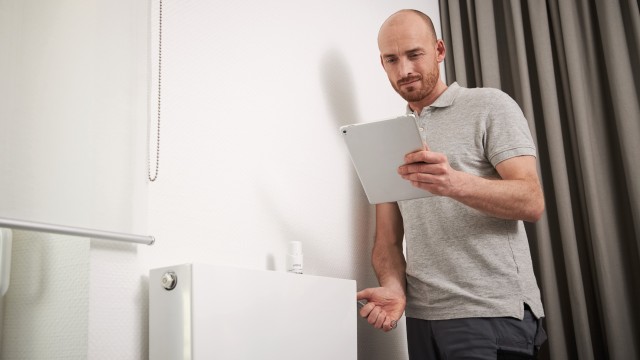What pressure should my boiler be when the heating is on?
A boiler’s pressure gauge will usually sit between 1 and 2 bars when it is turned on. The exact recommended pressure level will vary depending on the boiler manufacturer, but generally, anywhere between 1.0 and 2.0 bar is ideal.
The boiler pressure level will rise when heating a home or providing hot water. However, it should still stay below the upper-pressure limit of 3 bar. Always check your boiler manual to see what the recommended boiler pressure level is for your boiler.



